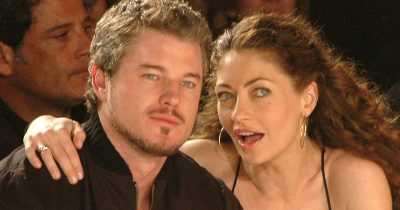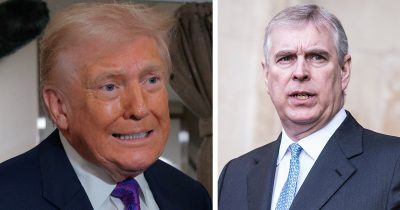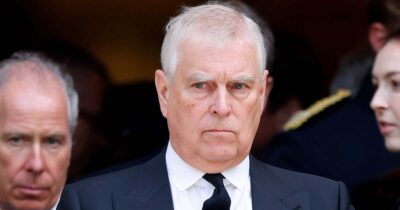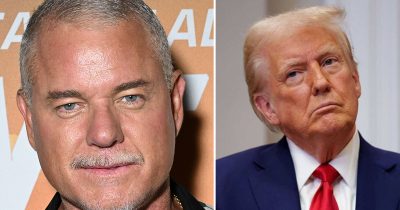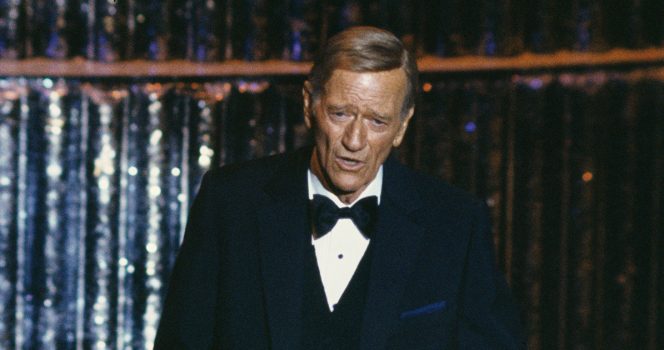
When the lights dimmed at the Dorothy Chandler Pavilion on April 9, 1979, Hollywood held its breath.
Behind the curtain stood a man who had become the very definition of American heroism on screen — John Wayne.
Cancer diagnosis
The 1979 Oscars turned into a night to remember for so many reasons. Acceptance speeches were short and sweet, and Johnny Carson, as always, kept the show rolling with his signature humor. The big awards went to two Vietnam War films, but the heart of Hollywood that night belonged to a true legend, John Wayne.
Just three months before the gala, what was supposed to be a routine gallbladder surgery turned into a grueling nine-and-a-half-hour operation for the ‘Duke’.
Doctors discovered stomach cancer and removed his entire stomach. At seventy-two, he was no stranger to defying odds — he had survived lung cancer fifteen years prior, losing a lung and several ribs to the disease in 1964. And the year before, he had missed the Academy Awards recovering from open-heart surgery to replace a valve.
Would Duke show up this time? Bob Hope, his longtime friend, called personally to ask. Wayne said yes.
Thin but tanned and jaunty
Inside the auditorium, the audience included colleagues who had shared screens with him over fifty years, from silent films in 1926 to 179 productions that had shaped Hollywood’s vision of heroism. They knew his politics, his controversies —but tonight was about more than that.
Wayne’s entrance was classic “Duke” – he slowly ambled down the staircase, smiling warmly at the audience. Many noticed he looked thin, yet still tanned and full of his signature charm.
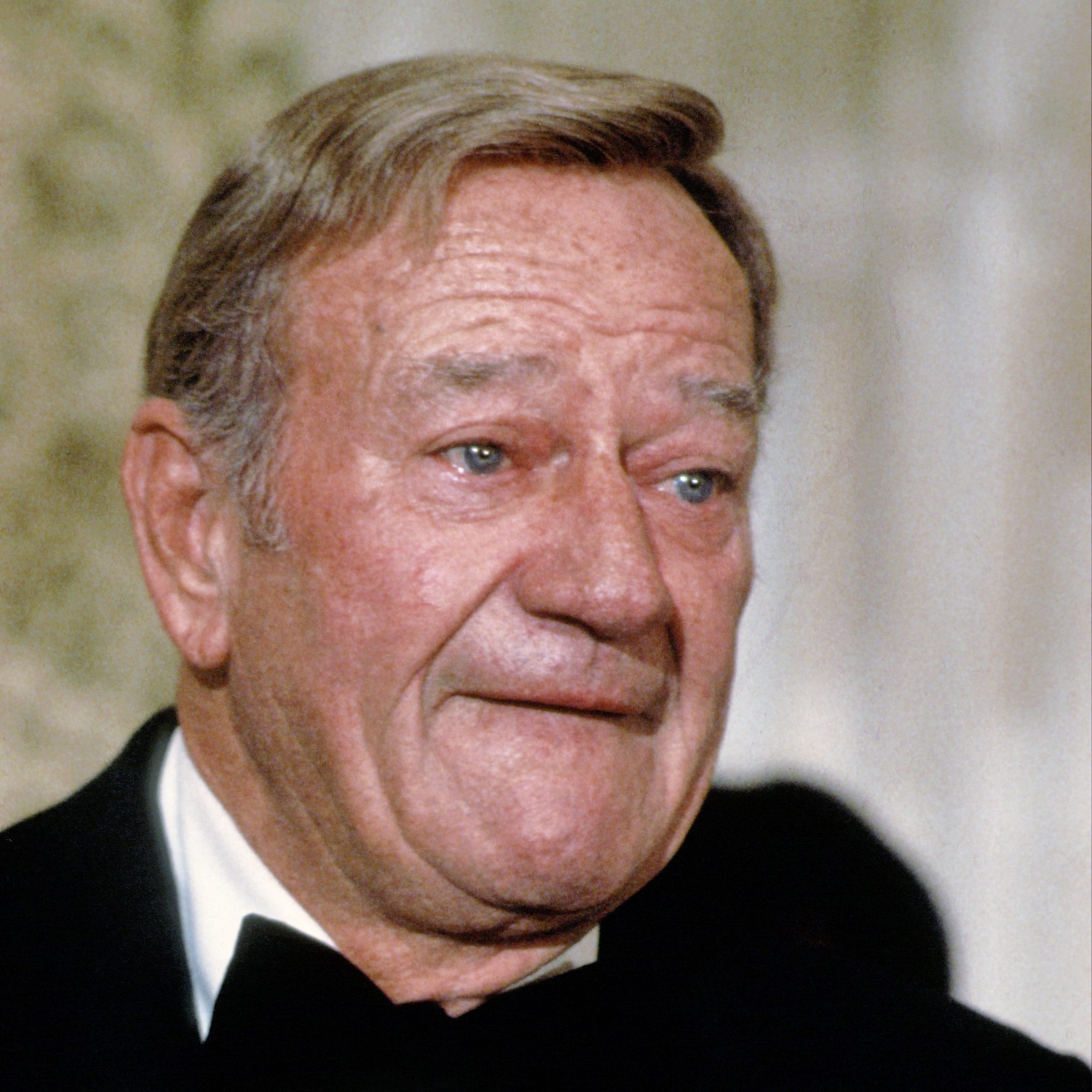
One by one, the audience rose. The ovation swelled and did not subside. They weren’t just applauding a career, they were honoring a man who had faced death and still shown up.
When the applause finally quieted, Wayne spoke in the voice that had carried across cavalry charges and frontier towns for half a century:
”Thank you, ladies and gentlemen,” he said. ”That’s just about the only medicine a fellow would ever really need.”
Five words. The crowd erupted again.
He continued, smiling through the weight of his survival:
”Believe me when I tell you that I’m mighty pleased that I can amble down here tonight. Well, Oscar and I have something in common. Oscar first came to the Hollywood scene in 1928. So did I. We’re both a little weather-beaten, but we’re still here and plan to be around for a whole lot longer.”
Wiped away tears
The audience laughed, some wiped away tears, all understanding the gravity of that promise.
Wayne went on to announce the nominees for Best Picture: The Deer Hunter, Coming Home, Midnight Express, An Unmarried Woman, and Heaven Can Wait. Opening the envelope, he declared The Deer Hunter the winner. As the producers took the stage, Wayne stepped back, surrounded by Hollywood friends. Little did anyone know, this would be his final public appearance.
Eleven days later, on April 20, Wayne was admitted to UCLA Medical Center with a bronchial condition. A week later, he was released. On his seventy-second birthday, May 26, he received the Congressional Gold Medal.
Died shortly after
Sixteen days after that, on June 11, 1979, John Wayne passed away at UCLA Medical Center. In his final months, he had enrolled in an experimental cancer vaccine study, telling doctors, ”If this is helpful, I’m going to help you afterward.”
His family would go on to establish the John Wayne Cancer Institute, carrying forward his legacy of courage and hope.
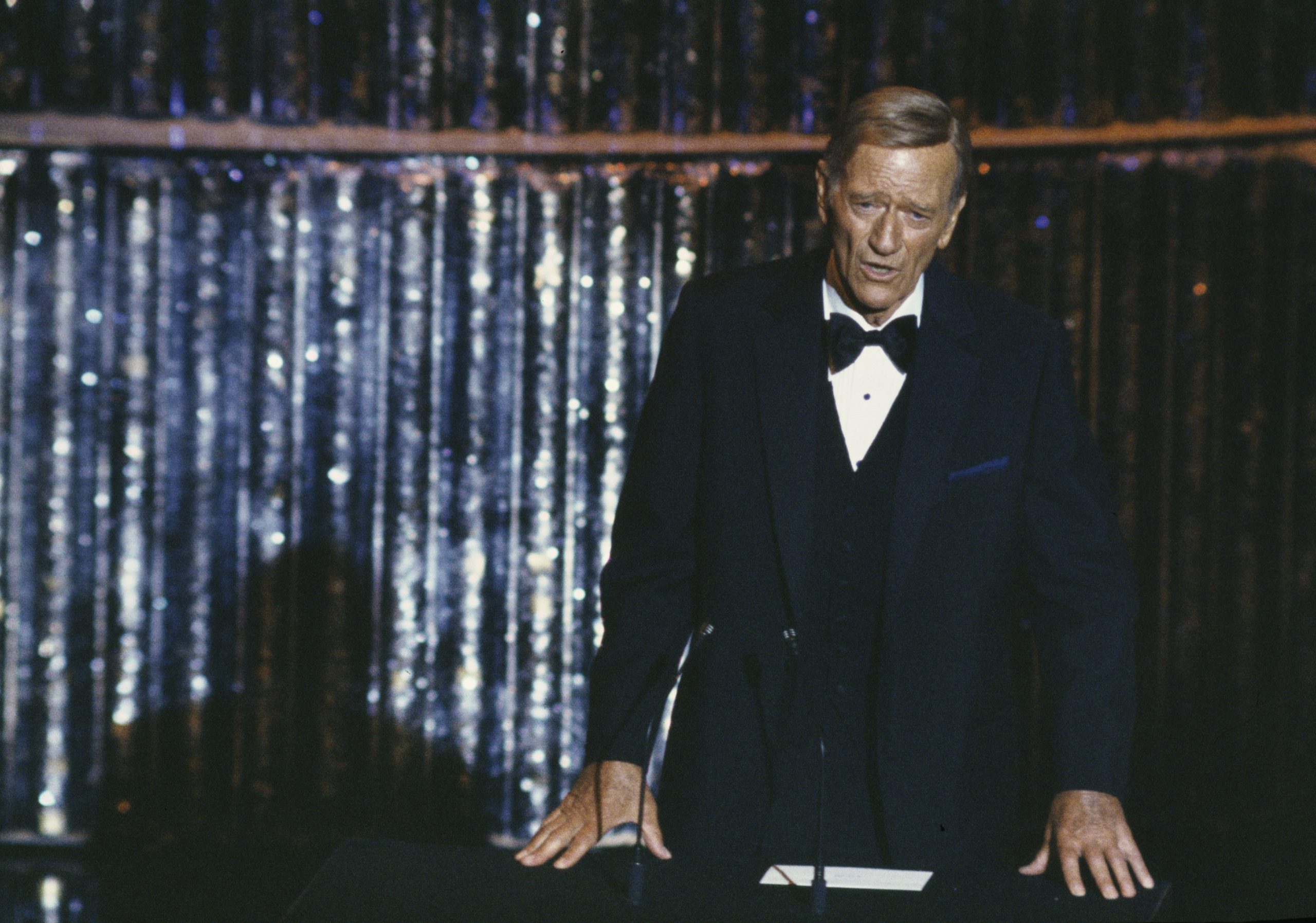
Wayne was buried at the Pacific View Memorial Park Cemetery at Newport Beach, California. It’s located on a beautiful ocean-view hillside, though the exact spot was a secret for decades.
According to a LA Times piece, for years his grave’s location remained a mystery. Guards locked fans out of his funeral service, and his farewell ceremony remained a private affair. His grave was left unmarked for two decades.
READ MORE
- John Wayne never served in WWII – and here’s why
- John Wayne’s last public appearance featured a hug that he wouldn’t have missed for the world
